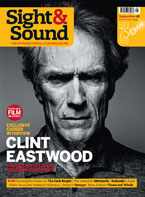Primary navigation

UK 2008

Reviewed by Mark Sinker
Our synopses give away the plot in full, including surprise twists.
London, the present. Tommo is a runaway arrived from Nottingham. Robbed and beaten, with nowhere to stay, he meets young Polish photographer Marek, whose guest-worker father Mariusz is working on the massive King's Cross rebuild. The two spend their time earning money on neighbour Graham's scams and courting waitress Maria. Unknown to Mariusz, Tommo sleeps in Marek's bedroom. When Maria leaves for Paris, a drunken Tommo and Marek party miserably in the flat. Mariusz returns unexpectedly, rages at Marek and throws Tommo out. Tommo sleeps at Graham's; next morning Marek and Mariusz make up. The boys dream of visiting Maria in Paris, and perhaps do so
Maybe it's because Somers Town contains such an obvious analogue - if not homage - to The Knack's famous bed-through-the-streets scene, maybe because it wears what there is of a plot so whimsically, but once Shane Meadows' light and likeably slight new film puts Richard Lester's 1965 confection in mind, the parallel carries on being suggestive - for all that this makes Thomas Turgoose a Rita Tushingham for our more tangled times...
Somers Town sits between London's King's Cross and Euston stations, and the coming high-transport age means it's under heavy reconstruction. Polish guest-worker Mariusz is here for work, his son Marek friendless and at a loose end. We open with city vistas and skylines, and Turgoose's young runaway Tommo chatting with a Scots girl on a train south: the film is full of the concrete and tactile presence of the buildings and voices that Meadows loves - the unexamined materiality of back streets, housing-estate forecourts and balconies, those bits of the world we pass through but rarely take in; the wrangle of giggling Polish as father and son teach themselves English by reading out a sex-problems page. Such landscapes and accents were taken for irreducibles in Meadows' earlier films - but just as the late 1950s Kitchen Sink sensibility would dissolve in the flicker and spin of mid-1960s Swingin' London, the stasis and resignation of his established Midlands milieu lose their glum traction in this margin of transient love and momentary togetherness, a flakily promised future of easy movement anywhere.
As he was in his debut This Is England, Turgoose - two years older, seemingly two feet ganglier - is a quicksilvery mirror of mood, his character a twitch of meaty jabs against the limits of his acting skill. With Marek slow and watchful, a semi-formed mumblemouth with a camera (very 1960s), they're a good onscreen team - there's a rational calculation to it (as opposites they complete each other), but also the lovely random unlikeliness of who ends up drawn to whom. This companionship is a shy excitement of exchange; ditto the puppy-love rivalry over French waitress Maria; even the needs-must work for neighbour Graham, a scamster with a lock-up full of dodgy rubbish. Kitchen Sink made speech and street into stifling prisons; for Meadows, protesting the obligatory disenchantments of a later age, they're often more like dreamscapes, to play with and against. In This Is England, the skinhead gang spent their happiest, freest day playing dress-up in cowboy hats and scuba masks, a brief carnival escape from community-imposed or subcultural tribal identity. Here Tommo, robbed and needing clothes, makes off with an old woman's laundry, and stoically pays the price.
Everyone's incomplete and on the move, getting by. The bond sketched between mouthy runaway and earnest photographer is fragile and happenstance. There are squabbles and face-offs, but for all this it's a consciously unconfrontational comedy of possibility: the emptiness of London's back streets may be a function of the pragmatics of film-making, but it amplifies the sense of fancy and untimeliness, as does the decision to shoot in black and white (except for a sequence in saturated low-res colour, which may or may not be meant to be read as straight fantasy).
Which takes us back to The Knack: Ann Jellicoe's original play was first performed at the Royal Court Theatre in 1962, the venue that had nurtured Angry Young Kitchen Sinkism as a theatrical movement - and in its virtuoso dizziness pushed back hard against AYKS' rather bogus heteronormative muscularity, its kneejerk of atomised social realism as unfreedom. The shift became culture-wide: the Beatles in their escapist success would make a visionary prophet of poor silly Billy Liar, demonstrating the arrival of horizons shut to British working-class youth since the closing of the Colonial Office. And Richard Lester of course set the skimmed tone and style for the Beatles films.
Somers Town ghosts a conflicted echo of a similar pushback, Meadows refusing some of the ways his earlier, grimmer work has been read. Whereas the unmacho boy-girl courtship in Jellicoe's tale is central, mocking the sexual conservatism of the otherwise radical theatrical movement being supplanted, here - aside from the long wordless near-homage sequence - the courtship is all but offstage. It's also (gently but perversely) sexualised, as is Tommo's role as Graham's willing skivvy, the all-purpose maid in Marigolds. The perversity is kept as light and jokily open as everything else - Meadows puts his faith in the micro-utopias of anti-coded cross-dressing and borrowed improvisation found in such spaces, as nourishing as they have to be fleeting. When the potbellied trader opens his door to the boys, in underpants and silk dressing-gown flung wide, bachelor emperor in a junk-age pad, it's as stubbornly prideful as it's funny.